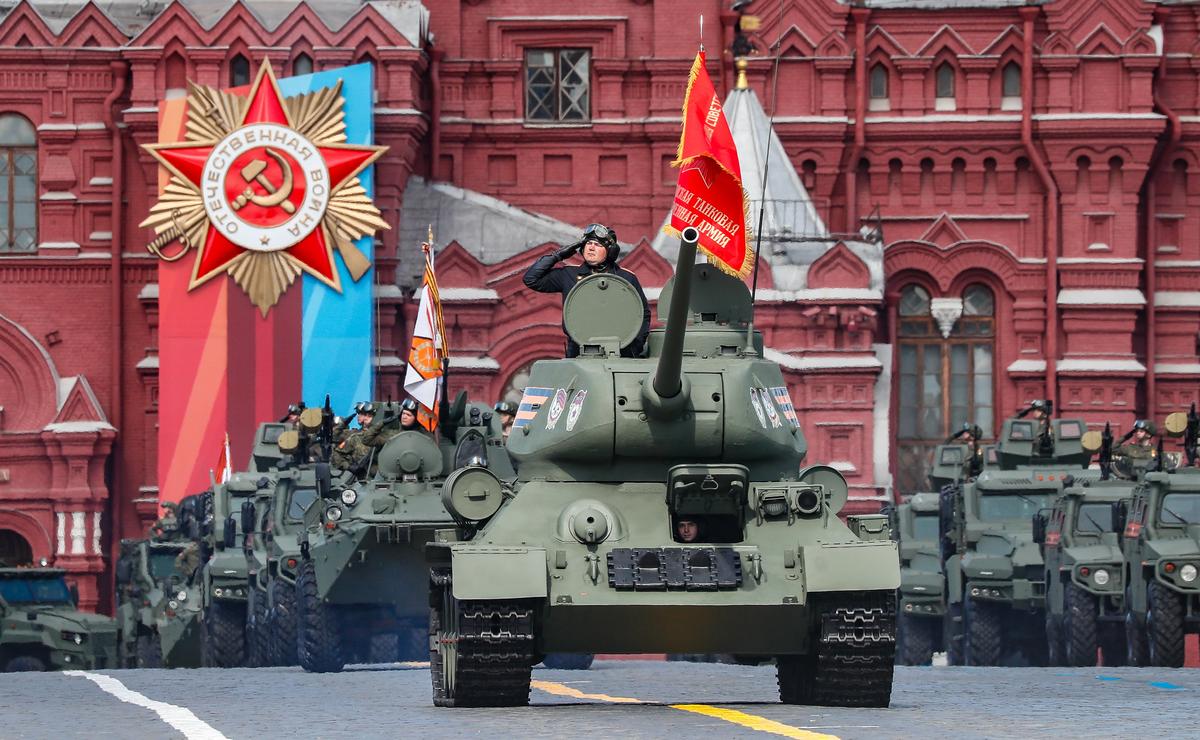
Russian World War II tanks take part in a rehearsal for the annual Victory Day parade on Red Square in Moscow, 5 May 2024. Photo: EPA-EFE / YURI KOCHETKOV
Chinese President Xi Jinping has accepted an invitation to attend Russia’s annual Victory Day parade in Moscow on 9 May, which this year commemorates the 80th anniversary of the Soviet Union’s defeat of Nazi Germany in World War II, Russia’s Ambassador to China Igor Morgulov said on Monday.
According to Morgulov, Xi has also invited Vladimir Putin to China in September for events to mark the 80th anniversary of its victory over Japan in what it calls the War of Resistance against Japanese Aggression.
The Kremlin previously said it had invited “many heads of state” to May’s Victory Day celebrations, with world leaders including Slovakian Prime Minister Robert Fico, Serbian President Aleksandar Vučić and Brazilian President Luiz Inácio Lula da Silva expected to attend.
Putin has focused on strengthening bilateral ties with Beijing in the face of Russia’s isolation by the West since its full-scale invasion of Ukraine, with the two declaring a “no limits partnership” during a visit by Putin to Beijing in February 2022 just days before Russia launched the invasion.
In May, Putin made his first trip abroad since beginning his fifth presidential term by visiting Beijing again, while Xi attended the BRICS summit in the Russian city of Kazan in October.
In January, Xi and Putin reaffirmed their unity in a video call just hours after the inauguration of US President Donald Trump, hailing ties they said were based on “friendship, mutual trust and support” and pledging to “elevate Chinese-Russian relations to a new level” despite external pressure.
Beijing, however, is reportedly concerned about Russia’s increasingly close ties with North Korea, especially at the deployment of thousands of North Korean troops to fight with the Russian military against the Armed Forces of Ukraine and the prospect of Moscow transferring technology to Pyongyang to assist it develop its nuclear programme, which Beijing views as a potentially destabilising force in the region.
